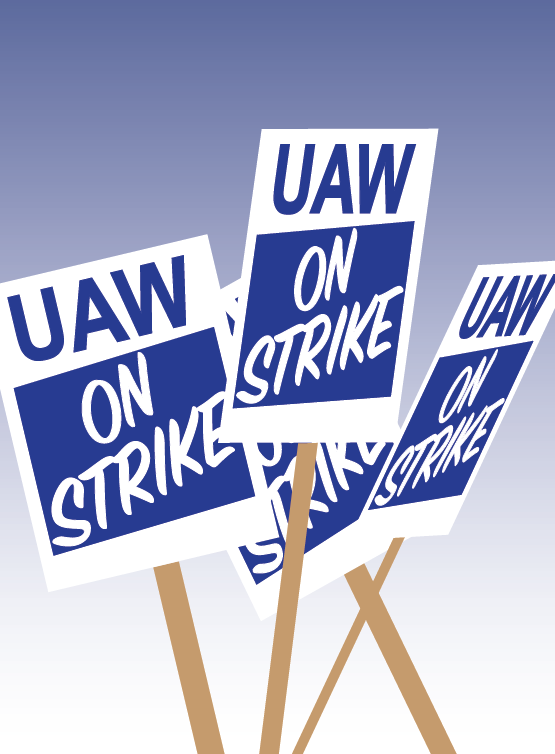
UAW Strike Could Destroy Michigan’s Economy
If the United Auto Workers strike against General Motors were to last more than a week, it could drive the Michigan economy into a head-first recession worse than the UAW strike in 2010. That’s according to economic experts queried by the Detroit News.
There are 14 assembly plants being picketed in Michigan, which puts those areas in the greatest risk to start seeing a reduction in purchases because of reduced income, a drop in corporate tax revenues, and an increase in unemployment benefits through insurance companies.
Besides union workers striking, there are also non-union workers who are being blocked from entering plants to do their jobs, which means they’re also not working. And if the closures continue, the domino effect will start taking down parts suppliers and other businesses that benefit directly from the manufacturers or indirectly like local bars and diners.
Other States Affected by Strike
“If we have a UAW strike less than a week Michigan, Ohio, and Indiana will feel it and the rest of the country will largely absorb it,” said Patrick Anderson, CEO of Lansing’s Anderson Economic Group. “Past 10 days, you’re starting to risk Michigan going into a one-state recession, particularly southeast Michigan.”
National economic growth will see only a fractional drop according to Anderson. “Once the foothold becomes too large and no makeup is possible within a month or two, that’s lost production and lost income which results in national implications,” said Danill Manaenkov, a University of Michigan forecasting specialist. Manaenkov thinks that with the strike pay UAW workers receive it will induce workers to continue the strike for more than a few weeks.
There are many less General Motors UAW workers now than when GM workers conducted their last national UAW strike in 2007. Then there were over 73,000 UAW workers. Today there are 46,000 members of the UAW at GM.
Anderson reminds everyone that the UAW does not drive the economy like it once did. A much larger government shut down at the end of 2018 when federal workers were furloughed for five weeks caused the loss of two paychecks. Bu the economy lost $11 billion from the combined delayed government spending, reduction in demand, and lost worker output according to the Congressional Budget Office.
UAW Workers’ Strike Pay
While lost production will cost GM, it will not create a credit risk for the company. But the workers will likely feel the pain. UAW members receive weekly strike pay of $250, and that is not dispersed until after 15 days.
As for GM, its “just-in-time” production system means that once assembly lines stop there will only be a few days before the need for outside components is not needed. Production at those outside job shops will stop with layoffs initiated until plant assembly lines start again.
Global Concerns
In addition to the UAW strike, global concerns also threaten the U.S. economy. The Trump tariffs and Saudi oil field attacks are a big concern for Michigan and the auto industry as a whole. Nationwide there can be a domino affecting consumer confidence the longer they hear about the strike and Trump tariffs on the nightly news.
Dealership reserves are at 80% for trucks and SUVs, so customers for new vehicles shouldn’t feel any pinch for the time being. But if the strike drags on, it will affect inventories and cause potential customers to shop elsewhere.



